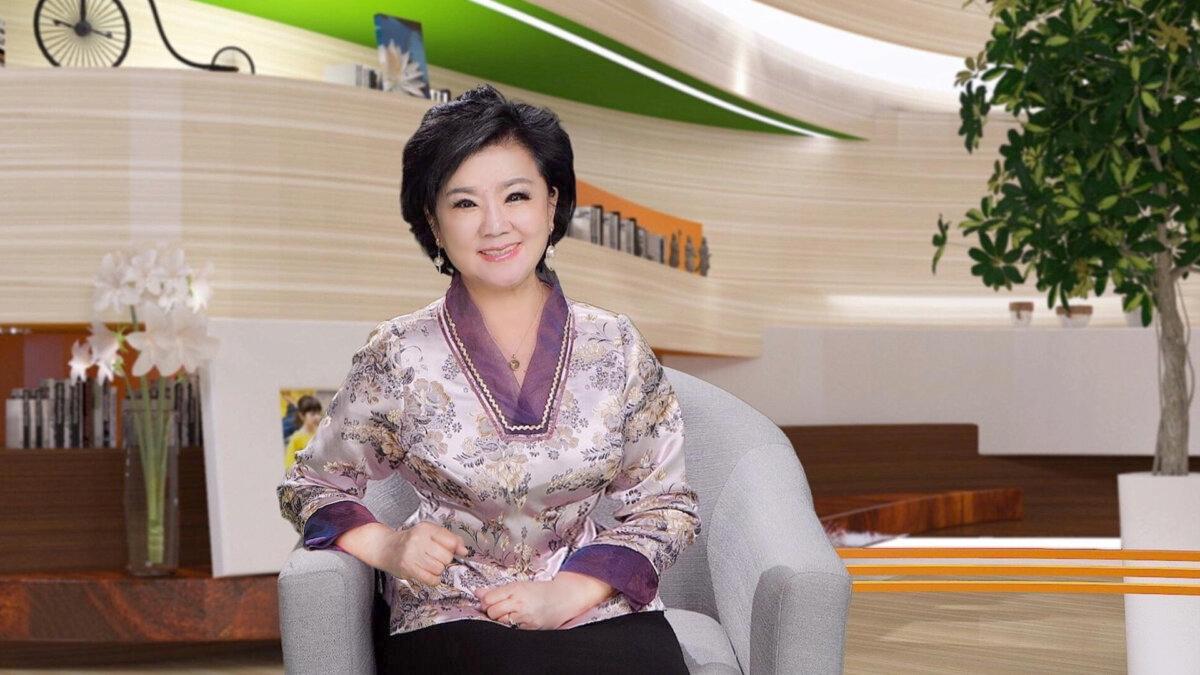Geng Jiping’s life once seemed flawless. She was a respected Beijing middle school teacher, decorated with awards for her lessons on civic education. Her husband was a successful businessman, and their only son attended one of the city’s top high schools. The family enjoyed a wealthy lifestyle.
“I believed that my own life, even that of my son’s and my family’s lives could be controlled with my own hands,” she said. “Everything was going well, and everything was going as planned.”
In early 2015, Geng and her family flew to Los Angeles to begin a new chapter.
Her husband had invested in the United States, and their green card was approved. The plan was simple—settle down, help their son get into a prestigious American college, and travel frequently to China to oversee their businesses. It was the kind of life many wealthy Chinese people dreamed of—until it was shattered overnight.
Geng shared her rollercoaster journey in America on “The Stories of Life,” a podcast hosted by Yu Xin for the Chinese edition of The Epoch Times’ sister media, NTD Television.

Geng Jiping reads "Zhuan Falun," the principal text for Falun Gong. NTD

Yu Xin, the host of the show "The Stories of Life." NTD
A Disappearance and a Shattered Family
Two weeks after arriving in California, Geng took a short trip to shop for gifts before flying home. Her 16-year-old son stayed behind in their hotel. When she returned, he was gone.She searched everywhere and called the police about her son’s disappearance. The story made local headlines—a missing Chinese teenager visiting the United States to tour colleges. He was eventually found miles away on Hollywood Boulevard, sick with fever and disoriented. Doctors later diagnosed him with severe depression.
The nightmare did not end there.
On their way to visit their son in the hospital, Geng and her husband were in a car accident. She was injured and taken to the hospital, but her husband had to return to China for work, leaving her alone to care for their son.
“I couldn’t tolerate such pressure,” she said. “I also started having symptoms of depression and paranoia. I even had pessimistic and suicidal thoughts. In the end, I was taken to the hospital by ambulance again. The doctor diagnosed me with depression and prescribed me medicine.”
In the months that followed, her husband’s absences grew longer. Rumors reached her that he was having an affair back in China. Almost two years later, she learned he had fathered a child with another woman.
“We were a family of three—it was like three pillars supporting our family,” she said. “First, my child’s pillar broke. Next, my own body started to have problems. Then, my husband had an affair and even had another child. So, all three pillars in this family were destroyed. I had no family anymore.”
Depression took hold of her life. For the first time, Geng discovered how powerless she was. Before, under communist China’s educational system of state atheism, she believed that man could conquer all. This time, she was helpless.
Search for Meaning
It was during this dark period that a kind acquaintance invited her to church. At first, Geng resisted. She had been raised under atheism and had taught for decades that faith was superstition.“[They] were generally quite kind, [and] they extended their helping hand to me,” she said. “It brought some hope in my life by learning the idea that there exists a heaven. I could still go to heaven in the future, and it’s not that everything disappears after death. So I gradually tried to believe this, but the notion of atheism was deeply embedded in me.”
Slowly, Geng’s depression lifted.
“I gradually believed in the existence of God,” she said. “My mental health was also starting to improve. Through faith, I stepped out of the dark shadow of melancholic phobia. I gradually became normal.”
But Geng’s journey was not over. A Buddhist friend later invited her to volunteer at a temple. She later found some Buddhist scriptures and books to read and had a new understanding of the Buddha, which opened up new horizons.
Curious to seek the truth, she prayed and asked God for guidance. What followed was a moment of revelation. She said, “At this moment, I heard a clear response—Li Hongzhi.”
Master Li Hongzhi is the founder of the spiritual discipline Falun Gong (also called Falun Dafa). The practice combines meditation and gentle exercises with a moral philosophy centered on the tenets of truthfulness, compassion, and tolerance.
After Master Li introduced the practice to the public in China in the early 1990s, an estimated 70-100 million people began practicing. Since then, the practice has spread to more than 100 countries worldwide. Despite this, in China, the practice has been subjected to extreme persecution by the Chinese Communist Party (CCP).

(Left) Two Chinese police officers arrest a Falun Gong practitioner on Tiananmen Square in Beijing on Jan. 10, 2000. (Right) Chinese police detain a Falun Gong practitioner on Tiananmen Square in Beijing, in this file photo. Chien-Min Chung/AP Photo, Minghui
Geng realized that Master Li’s purpose was to save people’s lives.
“I have committed a great sin,” she said. “I used to teach politics in a middle school in Beijing. What I had been teaching was about atheism and evolution. That content was from the Chinese Communist Party (CCP). The CCP put those materials in the textbooks. At that time, I was a firm atheist, so I followed the textbook and said some disrespectful words to [Falun] Dafa and disrespectful words to Master Li Hongzhi. Now I’ve gradually come to believe in the existence of God.”
For Geng, seeing through the CCP’s deception was not merely political—it was the final step in freeing her heart.
The Change
Geng’s curiosity led her to search for the truth about Falun Gong. She started to read “Zhuan Falun,” the principal text for Falun Gong, written by Master Li.“When I finished reading Zhuan Falun, I suddenly understood everything that the CCP had said before was a lie. The CCP uses fabricated evidence to attack Falun Gong,” she said. “The CCP said that Falun Gong practitioners committed suicide, but what Master said was that suicide is a sin and one cannot commit suicide. The law of the universe taught by the Master is truthfulness, compassion, and forbearance—to be a good person and a better person.”
From there, she embarked on the path of spiritual cultivation through Falun Dafa. With time, her mental illness completely went away. Her sleep returned. Her anxiety lifted. She began to feel a peace she had never known.
Deeper Understanding of the CCP
Through her spiritual exploration, Geng began to confront her past praise of the CCP in her classroom and the values she once taught her students.“Sometime after I gradually became a cultivator, I came across a book called ’Nine Commentaries on the Communist Party,'” she said. “The book revealed the essence of the Communist Party incisively and vividly. It has been killing tens of millions of people. I came to deeply understand that the Communist Party is the devil.”
After this revelation, Geng decided to renounce the CCP through the Global Service Center for Quitting the CCP.
Regarding her past, she said, “I especially want to say a few words to my former students. As a teacher, I am sorry. I myself was a victim of communist atheism, materialism, and its evolutionary education. I was also involved in poisoning your hearts.”
That sense of moral awakening gave her a new purpose. She began sharing her story with others—how a woman found the truth through Falun Dafa and turned away from the CCP.







